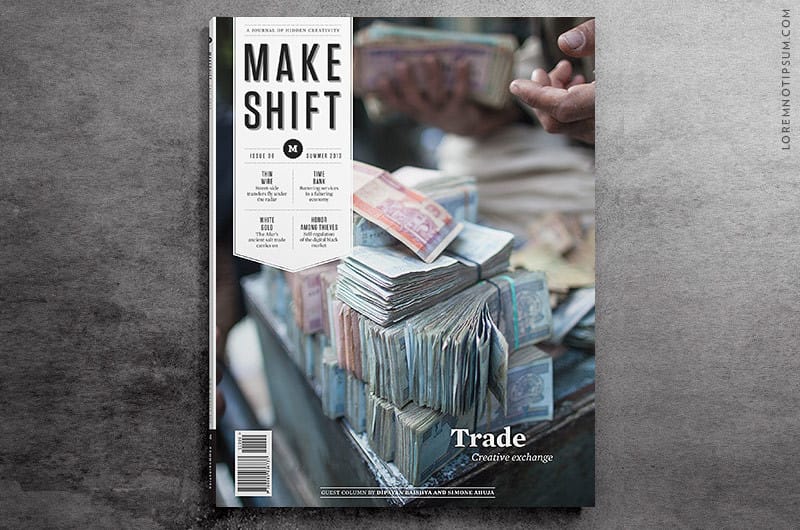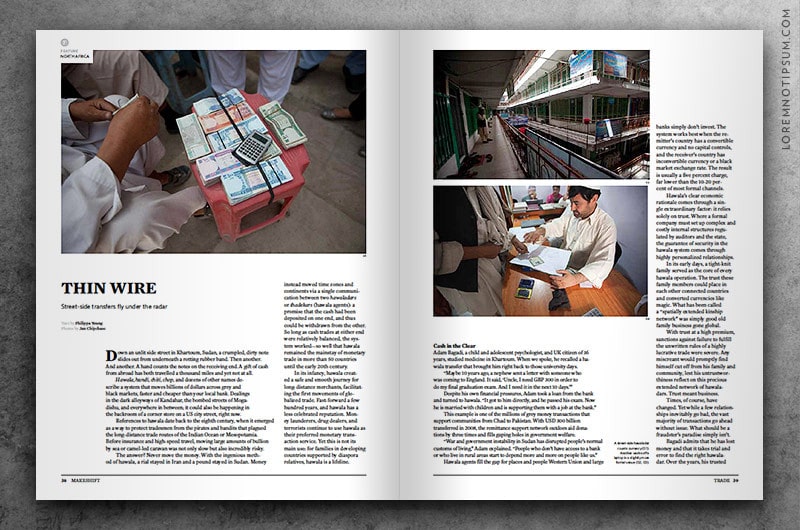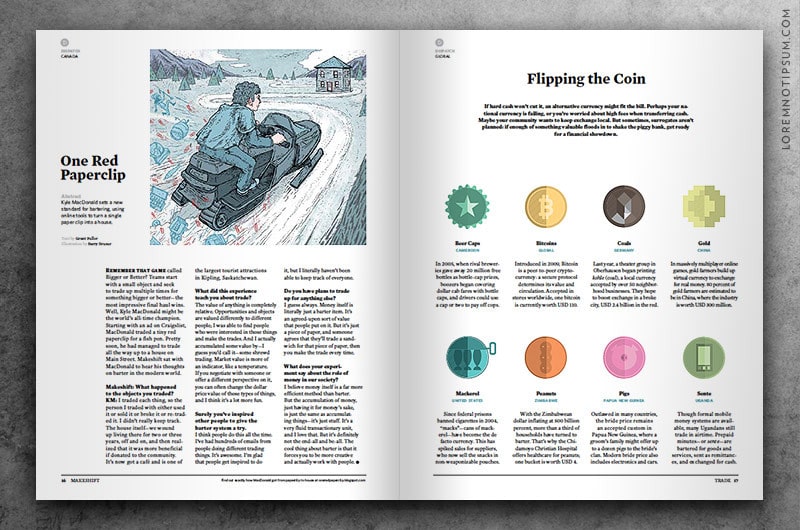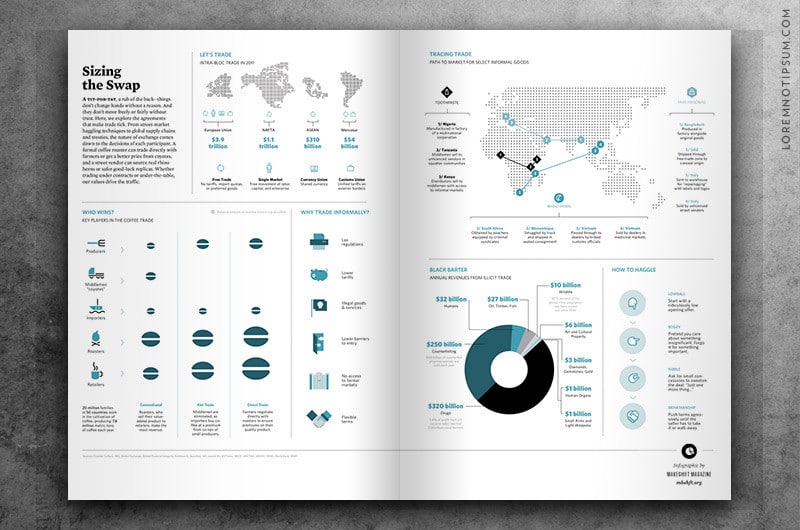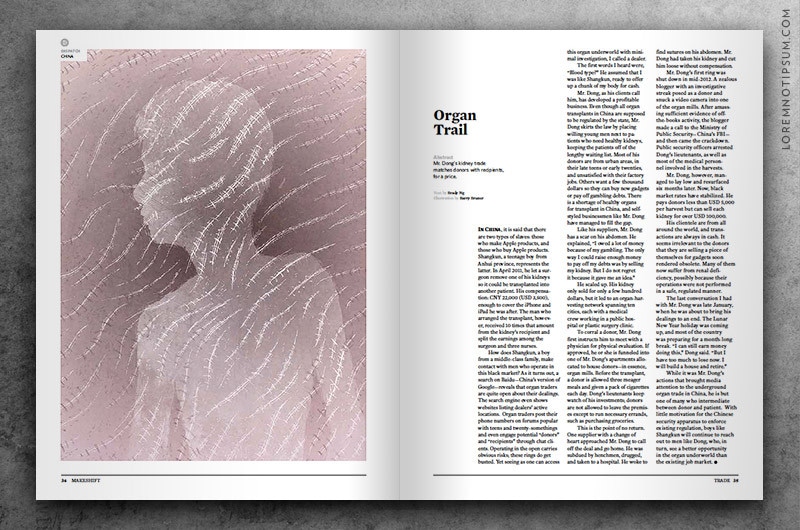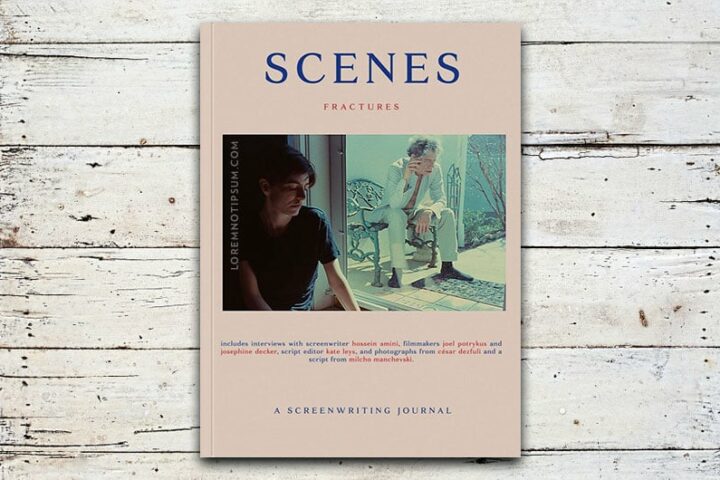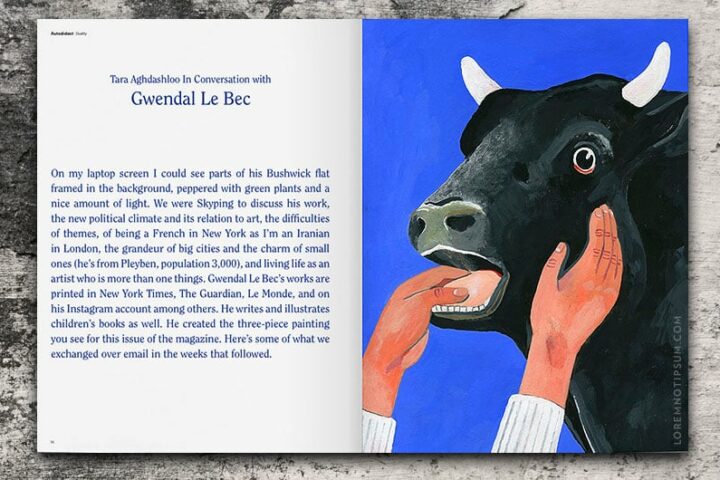Makeshift Magazine Issue 6 is available now. It’s nothing new: hawaladar agents have moved cash across vast swaths of the Middle East and North Africa for centuries. What has changed are methods and currencies. San Francisco and Mogadishu are unlikely partners breeding a digital street trade, with mobile money—the new hawala—fueling vendors and remittances on both sides. Meanwhile, our tender is both unifying and fracturing, with bitcoins accessible anywhere and micro-currencies emerging where bottle caps or peanuts are deemed as valuable as cash. The hope of trade has always been that by opening doors, everyone can find what they want. But it takes more than freedom—accessibility and transparency too—to keep trade fair. Find more interesting stories in Makeshift Magazine Issue 6.
The Content
- Organ Trail. Brady Ng investigates Hong Kong’s Mr. Dong, whose kidney trade matches donors with recipients, for a price.
- Thin Wire. Philippa Young tracks hawala, the Middle East’s age-old money transfer, and the rise of mobile money.
- Barter in Bloom. Ulises Escamilla reports from Trueque Market, where Mexico City residents swap used goods for fresh food.
- Infographic: Sizing the Swap. Exploring the agreements that make trade tick, from street-market haggling techniques to global supply chains and treaties.
- Observed: Trade. From animal hawkers to electronics collectors, our far-flung contributors offer a visual tour of Trade.
Plus…
- The digital black market
- Mumbai’s rat killers
- efugee trade in Uganda
- Swapping houses in Havana
- And more…
